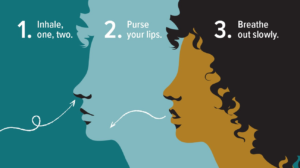Having a chronic condition usually means taking one or more medications. Therefore, it is very important to understand and properly manage your medication usage. Medication can be a very important part of managing a chronic illness. While medications will not cure the disease, they can help to keep the disease under control and often will make your life more comfortable. Here are 5 medication usage:
- Relieve symptoms
- Prevent further problems
- Improve the disease or slow its progress
- Replace substances the body normally produces
The goal of treatment is to maximize the benefits and minimize the risks. This means taking the fewest medications, in the lowest effective doses, for the shortest periods of time. Whether the medication is helpful or harmful you must communicate your experiences with your doctor. Even if your doctor doesn’t ask, there is certain vital information about medications you should mention during every consultation. To reduce the risks of taking medications, especially if you are taking multiple medications, it is important to develop a partnership with your health care provider(s).
Here is a brief list of Medication Responsibilities:
- Inform ALL your health providers of ALL medications and dosage (This includes dentists, too)
- Make and carry a medication list (Be sure to keep this updated, and review it periodically with your health care provider or pharmacist.)
- Know why you are taking each medication and how to take it (This means understanding what each medication is for, what it is supposed to do for YOU, and the directions for taking it.)
- Report effects of each medication or if you are not taking it as prescribed (Be honest and tell your provider if you’re not taking them exactly as prescribed.)
- Use medications as prescribed (This means don’t cut pills in half unless instructed to do so, share pills with others, or take medications that were not prescribed for you.)
Medication can help or harm. What often makes the difference is the care you exercise and partnership you develop with your doctor.





